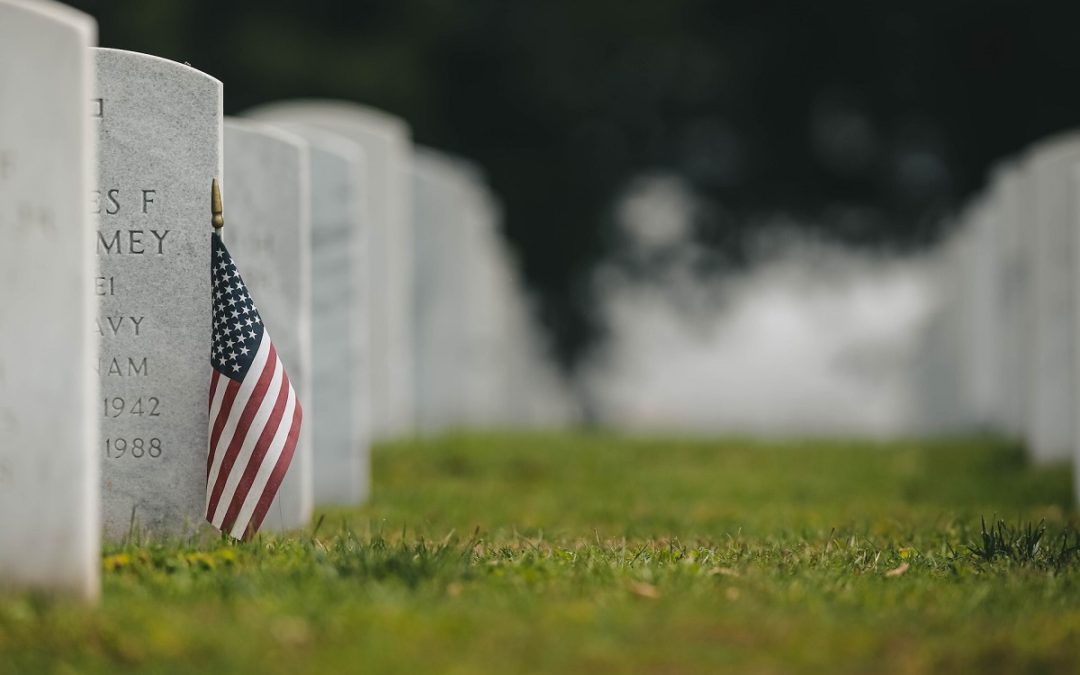Memorial Day
It’s a holiday many look forward to at the end of a school year; when outdoor enthusiasts line the boat launches at lakes and rivers to embrace their long-awaited 3-Day weekend. For many, it just seems like a paid day off to BBQ and spend time with friends and family. Unless you have really experienced the loss of a loved one who served in the military…you may or may not feel connected to the real meaning of this day of celebration.
Lives Forever Changed
When someone dies in battle, the lives of family members left behind are forever changed. As a parent, I can’t imagine the heart-dropping experience of military professionals arriving at your front doorstep to notify you of your child’s death in the line of duty. I was very fortunate that my son Eric, who served 31/2 years in the Army, was stationed in Niger Africa and never saw combat. While family members afflicted with grief try to put their lives back together, there is another group of people who also live with survivor’s guilt.
As a therapist, I’ve had the pleasure of working with many Vietnam and Iraq veterans. Some of the hardest work has been in helping those who watched their friends, brothers and sisters die in combat. It’s not uncommon for someone to have been away from their platoon due to their own injuries, and when they got out of the infirmary, were made aware that their entire platoon was taken out. The survivor’s guilt that veterans left behind have to work through can be very intense and it requires a lot of work on negative beliefs.
Post Traumatic Stress Disorder
Most people recognize PTSD as an acronym that represents some very classic symptoms such as nightmares or unwanted memories of the trauma, avoidance of situations that bring back memories, heightened sensitivity and reactions to stimuli, anxiety or depressed mood.
Survivors of military trauma often have strong hypervigilance for safety and spatial awareness. They don’t like being in situations where they can’t see everyone in a room. They often struggle to be in places where they feel trapped, or can’t easily find an escape route. They might have difficulty seeing gray and only think in black and white…which has a huge impact on their personal relationships. Memories may be stuffed and they might not know how to make sense of the pieces of the memories they want to avoid. EMDR is a very effective modality to help veterans through previous trauma and help them re-engage in their life.
High-Risk Behavior
The intensity of training for combat requires individuals to have a strong risk identification and plan for mitigation of risk. However, once out of the service…veterans struggle to untrain their minds from that structured thinking. The military leaves a large space in the service member’s life, and that space is going to be filled with something; i.e. high-risk behaviors such as drinking and driving, substance abuse, unprotected sex, high-speed driving in cars or motorcycles; skydiving, cliff jumping, etc. Anything that essentially brings their adrenaline back to what has been established as their new baseline.
Ex-veterans who were in that level of combat, need to relearn what normal feels like. For many, they feel either depressed or numb…and only feel something when they are seeking adrenaline-inducing activities. This is unfortunately a big challenge for many men and women. The things that bring joy and provide excitement to the average person, barely scratch the surface of feelings for this cohort.
Seeking Help and Support
Whether you are a veteran who has never sought treatment for some of these emotional issues, or you are a partner/spouse of someone who has seen trauma…it’s important that you seek the support you need. Sometimes, just understanding what is normal and not normal can be a huge validation through other people’s stories. There’s great support in common humanity with others.
Pause and Reflect
So this Memorial Day, before you go about your weekend festivities, take a moment to reflect, read an article, watch a documentary, or embrace a moment of silence for all the lives lost in combat, and all the lives forever changed by either their experience or grief for someone they lost.

